Peter Suber has written extensively about open access, including the short overview here. His book "Open Access" (2012) from MIT Press is freely downloadable here. According to Suber
"Open access (OA) literature is digital, online, free
of charge, and free of most copyright and licensing
restrictions."
Scholarly Publishing and Academic Resources Coalition (SPARC) 's definition:
"Open Access is the free, immediate, online availability of research articles, coupled with the rights to use these articles fully in the digital environment."
SPARC on open access. SPARC on open data. SPARC on open education
Open access (OA) can be green, gold, gratis or libre. Green OA refers to authors' self archiving their work on their own web or social media site, in their institution's repository, or in a discipline based repository. Gold OA refers to an article that is freely accessible on the journal's website; the journal may be fully open access, or a hybrid with some articles freely available and others behind a paywall. Gratis open access articles can be accessed by anyone without any monetary charge. Libre open access articles may be accessed and re-used without restrictions.
The BBB Declarations; Budapest, Berlin, Bethesda:
The Budapest Open Access Initiative 2002 (BOAI, a declaration drawn up at a meeting sponsored by Soros' Open Society Institute) defined open access to academic articles thus: "By 'open access' to this literature, we mean its free availability on the public internet, permitting any users to read, download, copy, distribute, print, search, or link to the full texts of these articles..." Self-archiving and open access journals were the means suggested. Subsequent declarations from Berlin (2003) and Bethesda (2003) expanded and elaborated on the call for open access. Subsequent "Berlin" meetings on campaigning & orchestrating for open access have been held, including the latest, Berlin 12, held in December 2015.
Ten years on from the Budapest Open Access Initiative: setting the default to open (2012): "Ten years of experience lead us to reaffirm the definition of OA introduced in the original BOAI:
By “open access” to [peer-reviewed research literature], we mean its free availability on the public internet, permitting any users to read, download, copy, distribute, print, search, or link to the full texts of these articles, crawl them for indexing, pass them as data to software, or use them for any other lawful purpose, without financial, legal, or technical barriers other than those inseparable from gaining access to the internet itself. The only constraint on reproduction and distribution, and the only role for copyright in this domain, should be to give authors control over the integrity of their work and the right to be properly acknowledged and cited."
Recommendations for the next ten years. (BOAI, 2012). New guidelines issued on the tenth anniversary of the Budapest Open Access Initiative.
"Every institution of higher education should have a policy assuring that peer-reviewed versions of all future scholarly articles by faculty members are deposited in the institution’s designated repository....that future theses and dissertations are deposited upon acceptance in the institution's OA repository...require deposit in the repository for all research articles to be considered for promotion, tenure, or other forms of internal assessment and review... We recommend CC-BY or an equivalent license as the optimal license for the publication, distribution, use, and reuse of scholarly work..."
A very brief introduction to open access from the Public Library of Science (PLoS) https://www.plos.org/wp-content/uploads/2011/09/a-very-brief-intro.pdf
The Association of American Publishers on open access.
For identifying current issues, discussions, conferences and reports: #openaccess and #OA posts on Tiwtter, and the Open Access Tracking Project.
SUNY held daily webcasts on Open Access topics, which were recorded and are still available for viewing:
CUNY's Megan Wacha, on Scholarship That’s Scholar-Led: An Introduction to Open Access. Open Access Week, SUNY, October 2016.
SPARC's Heather Joseph, The Bigger Picture of OA: Alternate Models of Review & Emerging Practices. Open Access Week, SUNY, October 2016.
